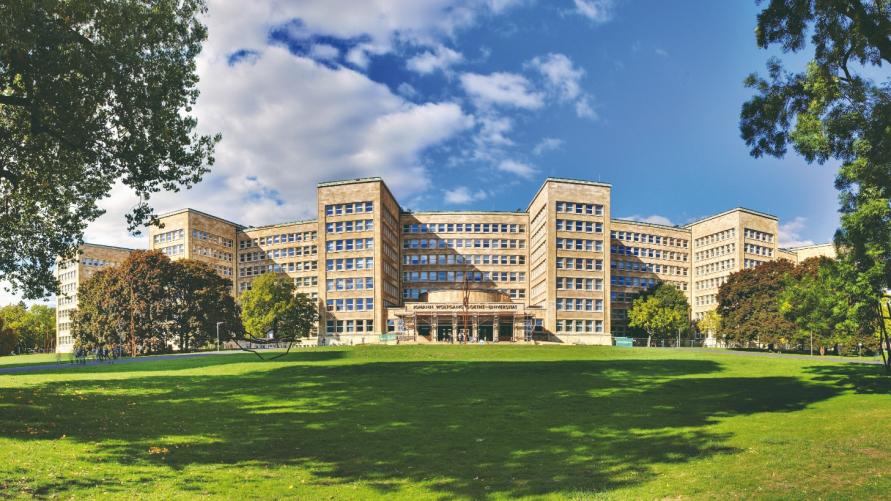
Foto: Rüdiger Fanslau - stock.adobe.com
Schools, colleges, and unis in Frankfurt Rhine-Main
Newcomers will want to find the right school for their kids. Or the right uni. There’s a great choice available, both public and private.
German schools represent more than just an opportunity for your child to learn a second language and experiencea foreign culture. Enrolling your child in a German school can help integration of both the child and you into the community. What’s more, the public education System is tuition free.
Academically, the German school System has a good reputation. The main complaint about the German system concern the short hours (in primary schools, it is common for children to finish school at noon), the lack of flexibility, and lack of programs for gifted and remedial children. In Germany, the school system is the responsibility of the respective state government and in response to the above shortcomin gs the State of Hessen has instituted a series of educational reforms. As a result, the high school curriculum was restructured and afternoon classes were introduced. The other significant reform involved substitute teaching. Hessen passed legislation so that classes will not be cancelled (and students sent home) due to a lack of human resources in schools. With students spending longer days in school, many schools are now offering hot lunches. Organized sports teams and other extra-curricular activities are still not offered at most German schools but are rather the domain of innumerable clubs (Vereine). It bears noting that the German school system expects parents to be active participants in their child’s education. Particularly at the primary and middle school level, parents should expect to spend an average of one hour daily helping their children with homework.

Partner Portrait
Stiftung Louisenlund
Founded in 1949 the Louisenlund Foundation looks back on a long tradition of holistic education, encouraging young people to become independent, confident and globally minded adults.

Partner Portrait
Forget everything you've ever known about schools!
Michael Höfig, Head of Strothoff International School, shares what this school has to offer young people and why parents should enroll their children at the private Strothoff International School.
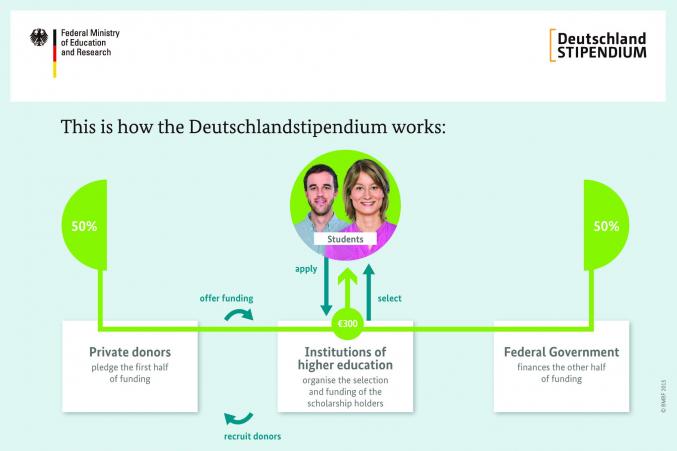
Partner Portrait
With the Deutschlandstipendium at Goethe-University
The young generation is our future. Therefore supporting their potential to become responsible leaders, peacebuilders and visionaries is the best investment one can make.
KINDERGARTEN
Germany has an excellent network of pre-schools ... after all, the idea of the kindergarten first arose here, invented by German educator Friedrich Fröbel in 1840. Kindergarten starts as early as age three and continues until age five. It is not a part of the regular public school system and so is not free. Tuition is often based on income, though fees are usually not expensive. Kindergarten in Germany stresses a child‘s social development and concentrates on structured play, arts and crafts, music and coordination skills. Children are not taught “learning ready” skills such as the alphabet and counting. Kindergartens are often run by churches, social organizations, or private companies .
GRUNDSCHULE
All children aged 6-10 must attend a primary school (Gr undschule). Here they are taught basic skills like reading, writing and arithmetic, as well as local history, geography and biology. In contrast to some other countries, students also have religion classes. In addition to their homeroom teacher, they have separate teachers for music and sports. Students are assigned up to 30-60 minutes of homework daily.
In the child‘s final year (4th Grade) in the Grundschule, parents and teachers come together to evaluate the child’s next level of schooling. If a child has the academic aptitude to warrant university education, he or she will move directly onto high school (Gymnasium). Those students who need another two years to can attend middle school (Förderstufe) after which they can choose between the Gymnasium and intermediate schools (Hauptschule or Realschule). This is one of the most nerve-wracking times for parents whose children are not initially offered a place in the university track, but remember, the teacher recommendations are not written in stone and can be appealed.
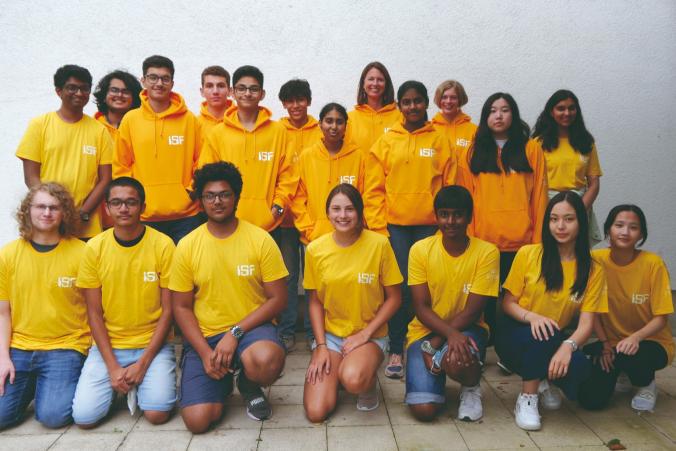
Partner Portrait
ISF International School Frankfurt Rhein-Main
ISF has been offering top quality education in Frankfurt for the last 25 years. School Director, Corina Rader shares what’s exciting about the school.
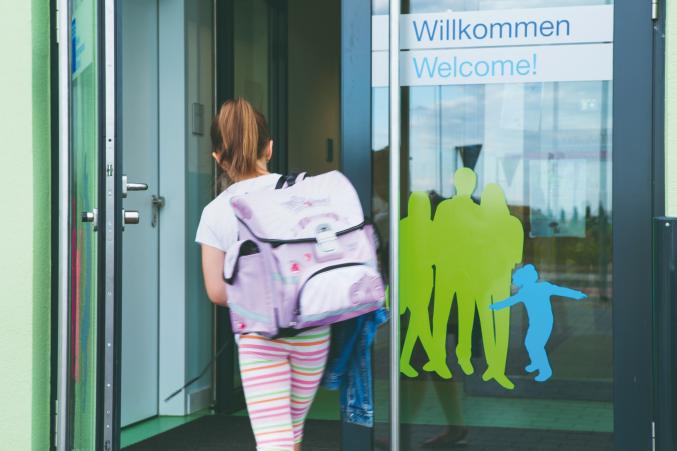
Partner Portrait
SIS Swiss International School Frankfurt
Frankfurt’s famous son Johann Wolfgang von Goethe once said: “Those who do not know foreign languages know nothing of their own language.
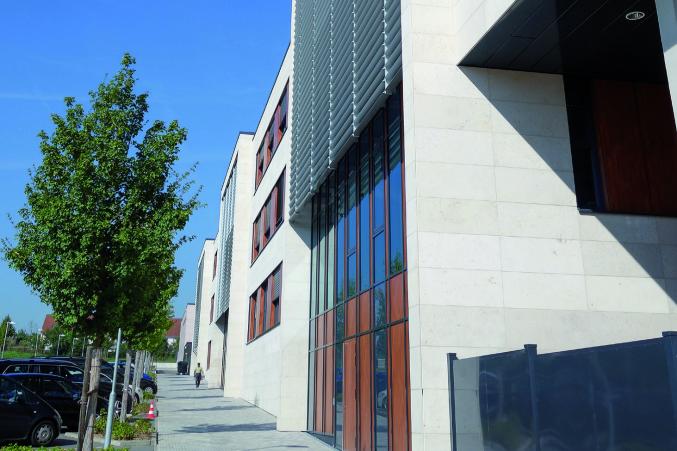
Partner Portrait
The European School RheinMain at a glance
Founded in 2012, ESRM is an all-day school in close proximity to Frankfurt. It is the first private European School.
HAUPTSCHULE
The lowest track in the German education System is the general school (Hauptschule). It Starts with the fifth grade and goes through to the ninth grade. A Hauptschule is a school where students prepare for occupations that require vocational training and continue learning basic subjects, as well as English. After a student completes the Hauptschule, he or she can go on to a vocational college, which usually lasts about two years.
REALSCHULE
A Realschule is more advanced than a Hauptschule. Here students learn the basic subjects that will prepare them for a mid-level job in business or a technical trade. If a student has performed well at a Realschule, he or she can also transfer to a Gymnasium.

Partner Portrait
Day Care Center, Primary with Reception and Secondary School under one roof
The bilingual private school with the best education for your child
GYMNASIUM
This school is the highest level of secondary education in Germany and prepares students to enter university. Gymnasium lasts 8 – 9 years and students learn German, Maths, Physics, Chemistry, Geography, Biology and History. Students are required to take a foreign language starting in 5th Grade. This is usually English, but Latin or French are also offered. A second foreign language can be added in 7th Grade and a third in 9th Grade. Students specialize in certain subjects in their final years.
In their last year, students take week-long exams in order to obtain their Abitur, or high-school-leaving certificate, qualifying them for university admission.
GESAMTSCHULE
The comprehensive school (Gesamtschule) combines all three high school types. First introduced in the 1960s, this type of school allows students to switch between different tracks without changing buildings.

International and Bilingual Schools
International schools are accustomed to dealing with children from all over the world and with varied linguistic backgrounds.

Bilingual Preschools and Kindergarten
Playing with other children and learning a new language at the same time is what many parents want. With the right concept, this is easy to do.

Bilingual Public Schools
Over the past several years, public schools in Germany have begun to intensify their bilingual offerings.

Schools with different languages
School education with a focus on an international language gives children a deeper understanding of a country’s cultural characteristics at an early age.
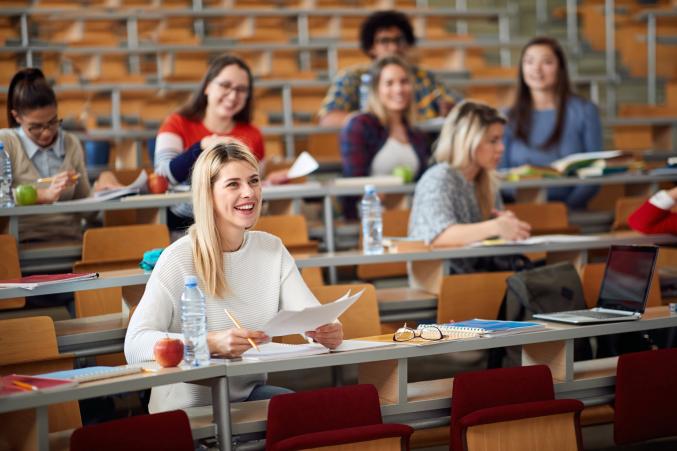
Higher Education
The 12 public institutions of higher education in Hessen are located in Darmstadt, Giessen, Frankfurt, Fulda, Kassel, Marburg, Offenbach and Wiesbaden and include five universities, five universities of applied sciences and two universities of music and art.

Adult Education
The Volkshochschule (VHS) Frankfurt am Main is the largest provider of adult education in the Rhine-Main region and one of the first places many newcomers turn to learn German

